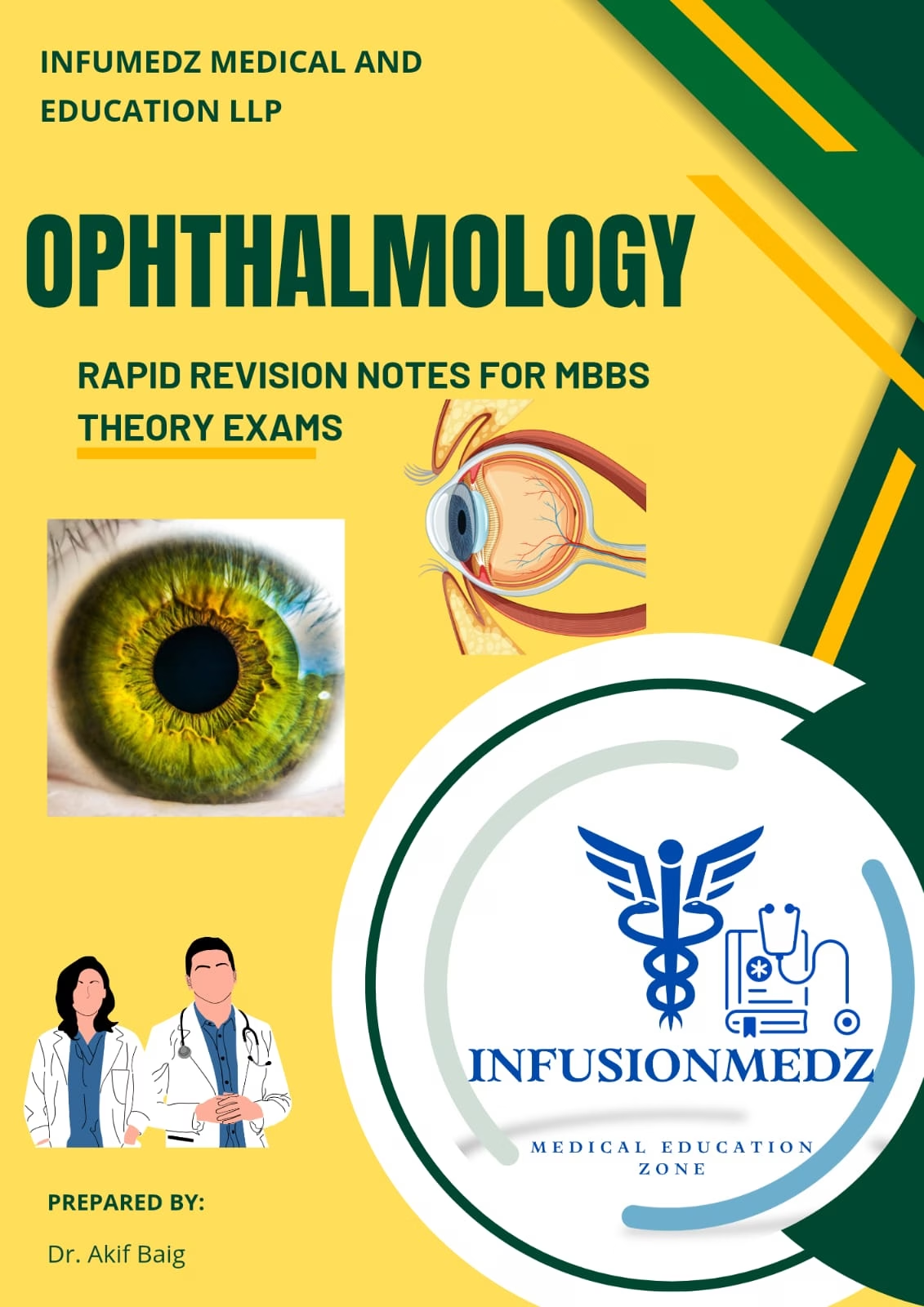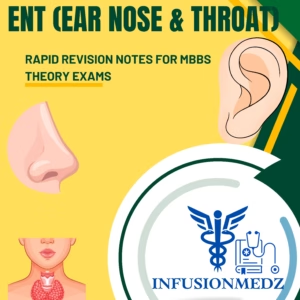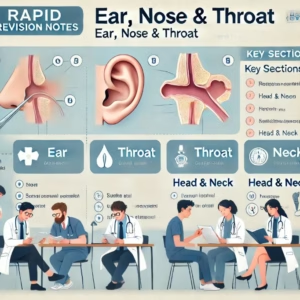Description
The Ophthalmology MBBS course provides a comprehensive understanding of the anatomy, physiology, diseases, and management of eye disorders. It includes the study of refractive errors, ocular physiology, pathology, and surgical interventions. Below is a summary.
Course Overview:
- Physiology of the Eye
- Function and structure of rods and cones (responsible for vision)
- Visual pathway and neural processing of visual signals
- Adaptation to light and dark conditions
- Refractive Errors and Vision Problems
- Ametropia (myopia, hyperopia, astigmatism, presbyopia)
- Correction methods (glasses, contact lenses, refractive surgery)
- Myopia management (LASIK, PRK, Ortho-K lenses)
- Diseases of the Eye
- Conjunctival disorders (conjunctivitis, trachoma, ophthalmia neonatorum)
- Corneal diseases (keratitis, corneal ulcers, pterygium, keratoconus)
- Uveitis and iridocyclitis (anterior uveitis, autoimmune associations)
- Glaucoma (open-angle and angle-closure, management)
- Retinal diseases (diabetic retinopathy, hypertensive retinopathy, retinal detachment)
- Cataracts (age-related, congenital, surgical management)
- Neuro-ophthalmology (optic neuritis, papilledema, visual field defects)
- Surgical Interventions & Treatments
- Cataract surgery and intraocular lens (IOL) implants
- Laser surgeries for retinal and corneal diseases
- Corneal transplants and keratoplasty
- Glaucoma surgeries (trabeculectomy, drainage devices)
- Pediatric Ophthalmology & Strabismus
- Squint (strabismus) and amblyopia (lazy eye)
- Congenital eye disorders (congenital cataract, congenital glaucoma)
- Management of pediatric vision problems
- Ocular Emergencies & Trauma
- Blunt and penetrating eye injuries
- Chemical burns and their management
- Sudden vision loss due to retinal artery occlusion
- Community Ophthalmology
- Prevention of blindness initiatives (WHO’s VISION 2020)
- Common public health concerns like vitamin A deficiency and trachoma
- Screening programs for refractive errors and diabetic retinopathy
Key Learning Outcomes:
- Develop a strong foundation in diagnosing and managing common and complex eye disorders.
- Learn clinical examination techniques such as slit-lamp biomicroscopy, fundoscopy, and intraocular pressure measurement.
- Gain hands-on surgical skills in cataract removal, laser procedures, and trauma management.
- Understand the role of preventive ophthalmology in reducing vision impairment globally.




Reviews
There are no reviews yet.